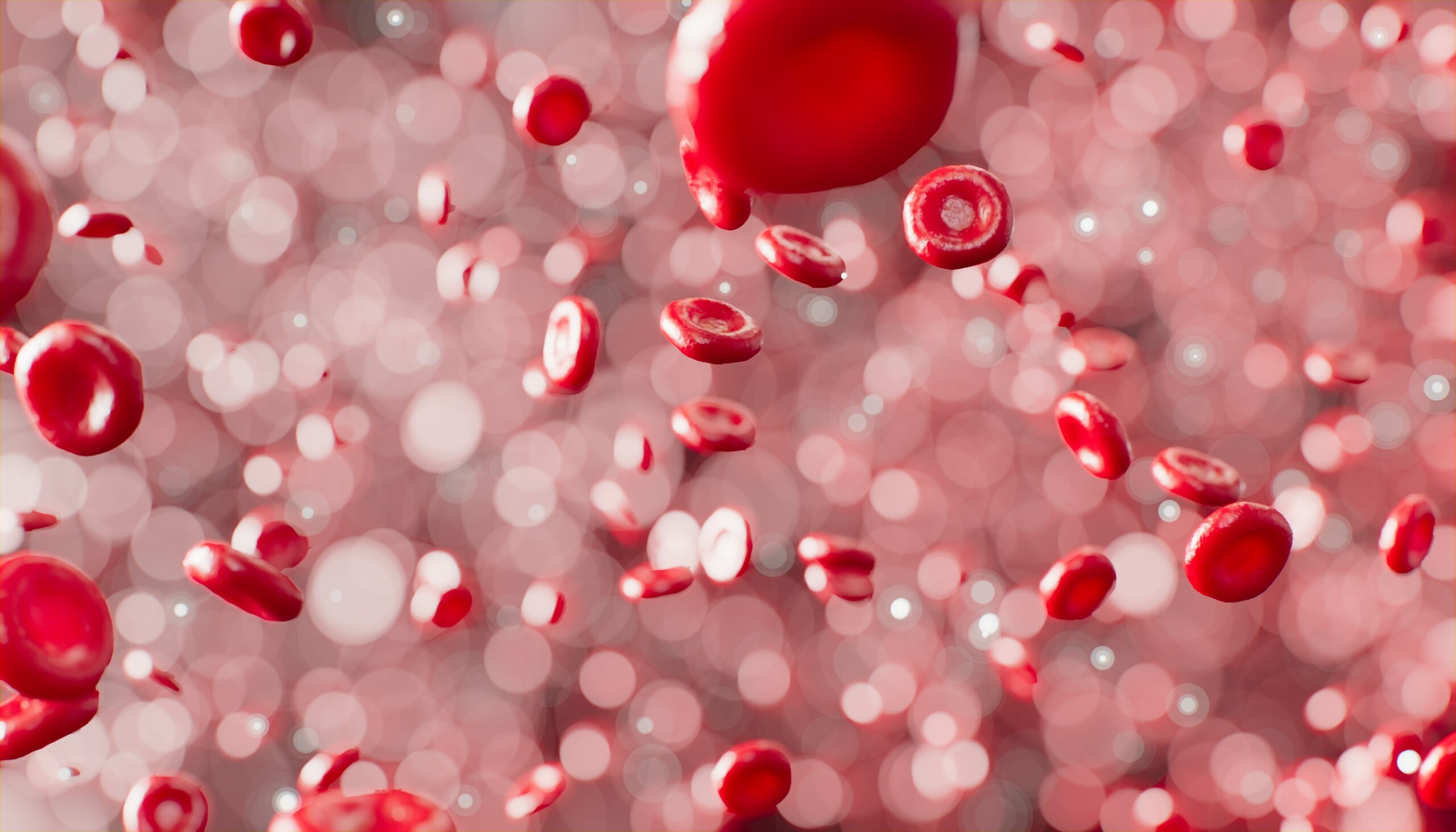
Iron deficiency is common, and over 380,000 people in the UK have iron overload.
Many overlook iron imbalances and don’t think it’s a severe medical condition. However, a low or high amount of iron can severely disrupt a person’s life and lead to long-term health complications.
The following article covers the average iron levels in men and women, the causes, symptoms, and long-term effects so you can see whether you should take an iron blood test.
What is Iron?
Iron is a mineral (a natural substance) that the body does not create on its own. Therefore, you must get enough food to give yourself the oxygen, energy, and strength you need to function. Enough iron prevents deficiencies and makes healthy red blood cells, reducing the chances of infection.
Why You Need Iron
Iron is essential to make haemoglobin, a crucial protein for red blood cells. These cells transport oxygen through your bloodstream to ensure your body gets enough —for example, your vital organs (like lungs) and muscles. Iron also helps regulate hepcidin, a hormone in the small intestine.

What are Normal Iron Levels for Men?
Normal iron levels in men fall between 13.5-17.5 grams of haemoglobin per deciliter of blood. Any higher or lower shows an imbalance of iron levels. Men need to eat approximately 8-10mg of iron daily to maintain a healthy amount. They can get this through beans, spinach, turkey and soy. Men retain iron levels more than women making iron deficiencies less likely.
What are Normal Iron Levels for Women?
A normal iron level in women is 12.1 to 15.1 grams of haemoglobin per deciliter of blood. Women cannot maintain the same amount of iron as men due to losing blood (and, therefore, haemoglobin) during their menstrual cycles. However, it is possible to maintain good levels with the correct nutrition and supplements.
What Causes High Iron Levels?
Haemochromatosis is when iron levels are too high and is known as iron overload – when the body absorbs and retains too much iron. It’s more common in men than women, as women lose iron during their periods, whereas men’s bodies maintain iron levels better.
Iron overload can be due to genetics, when a person struggles to process the iron, which stays in the body, building up over time.
Other causes can be overdosing on iron supplements, liver disease, kidney dialysis or having a blood transfusion.
Symptoms of Iron Overload

-
- Fatigue– Too much iron builds up in vital organs and prevents the production and regulation of hormones, making you constantly tired.
- Erectile Dysfunctionread more on erectile dysfunction here.
RELATED: Take an Erectile Dysfunction Blood Test.
-
- Feeling weak – If you find it difficult to lift things or move your body for exercise, it may be a sign of iron overload.
- Weight loss – Excess iron can cause weight loss, so if you find your weight decreasing from an unknown cause, take an iron test.
- Irregular periods – Iron overload in women can cause irregular periods or stop them altogether. If this is something you are experiencing, you may have iron overload.
RELATED: If you have irregular periods, you can also try a Polycystic Ovary Syndrome Blood Test.
- Joint pain – If your body cannot process iron, it can deposit it in the joints and create discomfort or pain.
Long-Term Effects of Iron Overload
-
- Diabetes– Because the blood leaves excess iron in organs, it can impair the pancreas, which is essential for producing insulin, a hormone responsible for regulating glucose and blood sugar levels. Read more about diabetes here.
RELATED: Worried about your blood sugar levels? Take a Diabetes Blood Test.
-
- Liver Disease – Haemochromatosis can damage the liver and stop it from efficiently eliminating toxins from the blood. You can keep your liver healthy by eating the best foods for your liver.
- Heart Problems– Iron overload harms the muscles, including the heart muscles, which can cause them to become weak. It could indicate heart issues if you always feel short of breath, have swollen legs, and feel tired.
RELATED: Do heart issues run in the family, or do you want to check you have a healthy heart? Try the Cardiac Risk Blood Test.
- Arthritis – The build-up of iron can cause joints to become stiff and painful, leading to arthritis.
What Causes Low Iron Levels?
The medical term for low iron levels is anaemia, and when there is not enough iron, the body cannot produce enough blood cells.
Anaemia in women still menstruating are most likely to have an iron deficiency because they lose blood, particularly teenage girls who may suffer from heavy periods.
In the UK, ‘44% of girls aged between 11-14 and 48% of girls aged between 15-18 have low intakes of iron in their diet.’
RELATED: Take an easy at-home Iron Deficiency Blood Test.
Pregnant and breastfeeding women also need extra iron to give the baby enough nutrients.
A lack of iron in men and women after menopause may be due to internal bleeding in the intestines or stomach – a sign of bowel cancer. Read more about bowel health screenings here.
Symptoms of Anaemia

-
- Weakness – When you don’t have enough oxygen from iron, your energy levels will drop and stop your muscles from developing and staying strong.
- A yellowish tinge to the skin – Anaemia can cause the release of a yellow pigment which makes your skin look pale or yellowish.
- Exhaustion – Long-term feelings of tiredness are a high indicator of low iron levels. You may find yourself dozing throughout the day or have difficulty focusing.
RELATED: Always exhausted? Try our Tiredness and Fatigue Blood Test.
-
- Cold hands and feet – The lack of oxygen can prevent heat and energy from reaching your hands and feet.
- Short of breath – When you don’t have enough iron, your body cannot make enough red blood cells to deliver oxygen efficiently. This can cause shortness of breath.
- Feeling dizzy – If you experience dizziness or lightheadedness, you may have anaemia because insufficient oxygen is not reaching the brain.
- Chest pain and heart palpitations – A reduction of oxygen causes the heart to work overtime trying to get enough red blood cells around the body. This can lead to an irregular heartbeat and pain in the chest.
RELATED: Do you have these symptoms? Take an Anaemia Blood Test.
Long-Term Effects of Anaemia
-
- Birth and pregnancy complications– A lack of iron can affect the development and growth of a fetus, which can make them underweight or affect its cognitive skills after birth. Mothers also have a higher chance of developing Postnatal Depression.
RELATED: Want to start a family? Try an easy Ovulation Home Test Kit.
-
- Lower immune system– Healthy red blood cells support the immune system and fight infection. However, a lack of them will decrease the body’s ability to fight off foreign and harmful viruses.
- Restless leg syndrome – Also known as Willis-Ekbom disease, this is a nervous system condition that causes the legs and sometimes arms to move.
Check Your Iron Levels
You can balance iron by eating or avoiding iron-rich foods, following advice from your GP and taking the right supplements. The easiest way to start is by taking a blood test to check if you have the correct iron levels.
I Want to Take an Iron Blood Test
If You Found This Article Useful, You May Also Like:
- How to Avoid Overdoing Supplements
- Men’s Hormone Imbalance: What You Need to Know
- Should You Go on a Vegan Diet?
Written by Emma Carey. Emma is a health and wellness enthusiast who likes to know the science behind how supplements, vitamins, nutrition and exercise affect the body. She’s on a health and fitness journey to improve her lifestyle and live life to its fullest.
FAQs
What is an abnormal iron level?
Abnormal iron levels are out of the range of 13.2 – 6.6 g/dL for men and 11.6 – 15 g/dL for women. If you have too much iron, you may not have sufficient healthy blood cells, and low levels can induce anaemia.
You can unbalance your iron levels by not getting the correct nutrition, overdoing supplements, or if your body struggles to absorb iron efficiently.
Why is my body not absorbing iron?
Autoimmune diseases that affect the intestines, celiac disease, inflammation in the bowel and stomach infections can prevent your body from absorbing enough iron to function. If this is the case, there are ways to manage these diseases and enable your intestines and hormones to process the iron it needs.
What do iron levels indicate?
Iron levels show how much haemoglobin (a protein) you need for healthy red blood cells to carry oxygen around your body. Taking an iron test will show if you have high or low levels, which may affect your health. For example, an excess of iron and anaemia can cause extreme fatigue.

